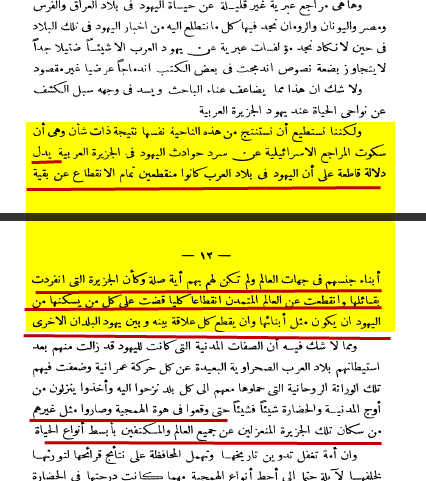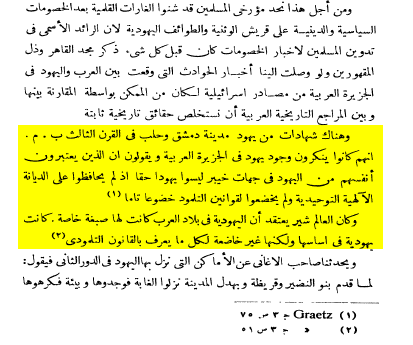الشبهة الأولى: زوجتا إسماعيل عليه السلام
يقول الملحد (منقول بتصرف):
نرى أن صاحب الشبهة يذكر بعض روايات البخاري عن قصة إسماعيل عليه السلام حينما ذهب لزيارته والده النبي إبراهيم عليه السلام فوجد زوجته تشتكي من سوء الحال فيطلب منها أن تقرئ زوجها السلام وأن تطلب منه أن يغير عتبة داره مشيرا بذلك عليه إلى أن يطلقها فيفهم إسماعيل عليه السلام مغزى الرسالة فيطلقها ويتزوج بإمرأة أخرى صالحة فيسر بها إبراهيم عليه السلام ويرسل إلى إسماعيل عليه السلام بنفس الطريقة رسالة مغزاها أن يحافظ على هذه الزوجة الصالحة...ثم يورد الملحد قصة في الكتب اليهودية تحمل نفس المعنى مع بعض الإختلافات في المضمون وكثير من الإختلافات في الأسلوب والبلاغة....اقتباسزوجتا إسماعيل
روى البخاري: (...................وشب الغلام وتعلم العربية منهم، وأنفسهم وأعجبهم حين شب، فلما أدرك زوجوه امرأة منهم، وماتت أم إسماعيل، فجاء إبراهيم بعد ما تزوج إسماعيل يطالع تركته، فلم يجد إسماعيل، فسأل امرأته عنه فقالت: خرج يبتغي لنا، ثم سألها عن عيشهم وهيئتهم، فقالت: نحن بشر، نحن في ضيق وشدة، فشكت إليه، قال: فإذا جاء زوجك فاقرئي عليه السلام، وقولي له يغير عتبة بابه، فلما جاء إسماعيل كأنه آنس شيئا، فقال: هل جاءكم من أحد؟ قالت: نعم، جاءنا شيخ كذا وكذا، فسألنا عنك فأخبرته، وسألني كيف عيشنا، فأخبرته أنا في جهد وشدة، قال: فهل أوصاك بشيء؟ قالت: نعم، أمرني أن أقرأ عليك السلام، ويقول: غير عتبة بابك، قال: ذاك أبي، وقد أمرني أن أفارقك، الحقي بأهلك، فطلقها، وتزوج منهم أخرى، فلبث عنهم إبراهيم ما شاء الله، ثم أتاهم بعد فلم يجده، فدخل على امرأته فسألها عنه، فالت: خرج يبتغي لنا، قال: كيف أنتم؟ وسألها عن عيشهم وهيئتهم، فالت: نحن بخير وسعة، وأثنت على الله. فقال: ما طعامكم؟ قالت: اللحم. قال: فما شرابكم؟ قالت: الماء. قال: اللهم بارك في اللحم والماء. قال النبي صلى الله عليه وسلم: (ولم يكن لهم يومئذ حب، ولو كان لهم دعا لهم فيه). قال: فهما لا يخلو عليهما أحد بغير مكة إلا لم يوافقاه. قال: فإذا زوجك فاقرئي عليه السلام، ومريه يثبت عتبة بابه، فلم جاء إسماعيل قال: هل أتاكم من أحد؟ قالت: نعم، أتانا شيخ حسن الهيئة، وأثنت عليه، فسألني عنك فأخبرته، فسألني عنك فأخبرته، فسألني كيف عيشنا فأخبرته أنا بخير، قال: فاوصاك بشيء، قالت: نعم، هو يقرأ عليك السلام، ويأمرك أن تثبت عتبة بابك، قال: ذاك أبي وأنت العتبة، أمرني أن أمسكك، ثم لبث عنهم ما شاء الله، ثم جاء بعد ذلك، وإسماعيل يبري نبلا له تحت دوحة قريبا من زمزم، فلما رآه قام إليه، فصنعا كما يصنع الوالد بالولد والولد بالوالد، ثم قال: إن الله أمرني بأمر، قال: فاصنع ما أمر ربك، قال: وتعينني؟ قال: وأعينك، قال: فإن الله أمرني أن أبني بيتا ها هنا بيتا، وأشار إلى أكمة مرتفعة على ما حولها، قال: فعند ذلك رفعا القواعد من البيت، فجعل إسماعيل يأتي بالحجارة وإبراهيم يبني، حتى إذا ارتفع البناء، جاء بهذا الحجر، فوضعه له فقام عليه، وهو يبني وإسماعيل يناوله الحجارة، وهما يقولان: {ربنا تقبل منا إنك أنت السميع العليم}. قال: فجعلا يبنيان حتى يدورا حول البيت وهما يقولان: {ربنا تقبل منا إنك السميع العليم}.
وروى البخاري: ( .......................فبلغ ابنها فنكح فيهم امرأة، قال: ثم إنه بدا لإبراهيم، فقال لأهله: إني مطلع تركتي، قال: فجاء فسلم، فقال: أين إسماعيل؟ فقالت امرأته: ذهب يصيد، قال: قولي له إذا جاء غير عتبة بابك، فلما جاء أخبرته، قال: أنت ذاك، فاذهبي إلى أهلك، قال: ثم إنه بدا لإبراهيم، فقال لأهله: إني مطلع تركتي. قال: فجاء فقال: أين إسماعيل؟ فقالت امرأته: ذهب يصيد، فقالت: ألا تنزل فتطعم وتشرب، فقال: وما طعامكم وما شرابكم؟ قالت: طعامنا اللحم وشرابنا الماء. قال: اللهم بارك لهم في طعامهم وشرابهم. قال: فقال أبو القاسم صلى الله عليه وسلم: (بركة بدعوة إبراهيم) قال: ثم إنه بدا لإبراهيم، فقال لأهله: إني مطلع تركتي، فجاء فوافق إسماعيل من وراء زمزم يصلح نبلا له. فقال: يا إسماعيل، إن ربك أمرني أن أبني له بيتا. قال: أطع ربك، قال: إنه قد أمرني أن تعينني عليه، قال: إذن أفعل، أو كما قال، قال: فقاما فجعل إبراهيم يبني، وإسماعيل يناوله الحجارة ويقولان: {ربنا تقبل منا إنك أنت السميع العليم}. قال: حتى ارتفع البناء، وضعف الشيخ عن نقل الحجارة، فقام على حجر المقام، فجعل يناوله الحجارة ويقولان: {ربنا تقبل منا إنك أنت السميع العليم}.
رواهما البخاري/كتاب الأنبياء/الباب التاسع: يزفون:النسلان في المشي/ حديثي3364و3365
ولنقارن هذا مع القصة الهاجادية التي كانت الأصل لهذه القصة، والتي تعود إلى الترجوم الزائف النسبة ليوناثان:
(زوجتا إسماعيل)
أنجبت زوجةُ إسماعيل أربعة أبناءِ و بنتاً، وبعدئذ ذهب وعاد إسماعيل وأمّه و وزوجته وأطفاله ذَهبوا وعادوا إلى البريّةِ. جَعلوا لأنفسهم خِيَمَ في البريّةِ التي سَكنوا فيها، وهم واصلوا التخييم والسَفَر، شهراً بعد شهرٍ وسنة بعد سنة. وأعطىَ الله إسماعيلَ ماشيةً قِطْعاناً وخياماً، لأجل إبراهيم أبيه، والرجل زادَ في الماشيةِ. و بعد بَعْض الوقتِ ، قالَ إبراهيم إلى ساره، زوجته، "أنا سَأَذْهبُ وأَرى إبنَي إسماعيل؛ أَشتاقُ للنظر إليه، لأني مَا رَأيتُه لوقت طويل." وركب إبراهيم على أحد جِمالِه إلى البريّةِ، لتفقد إبنِه إسماعيل، حيث سَمعَ بأنّه كَانَ يَسْكنُ في خيمة في البريّةِ بكُلّ ما يَعُودُ إليه. وذهب إبراهيم إلى البريّةِ، ووصل إلى خيمةَ إسماعيل حوالي وقت الظّهر، وإستعلم عنه. وَجدَ زوجةَ إسماعيل جالسة في الخيمةِ مَع أطفالِها، وزوجها وأمّه ما كَانا مَعهم. وسَألَ إبراهيم زوجة إسماعيل، قائلاً: "أين قد ذهب إسماعيل؟ " وهي قالتْ: "ذَهبَ إلى الوادي ليصطاد طريدة." وكان إبراهيم ما زالَ راكباًً فوق الجَملِ،لأنه لم يكن ليَنْزلَ على الأرضِ، إذ أقسمَ لزوجتِه سارة بأنَّه لن يَنْزلَ عن الجَملِ. وقالَ إبراهيم إلى زوجةِ إسماعيل: "يا بنتي، اعطني قليلَ ماءٍ، لكي أَشْرب، لأَني مُرْهَق ومُتعِبُ مِنْ الرحلةِ." وأجابت زوجة إسماعيل وقالتْ إلى إبراهيم: "ليس عِنْدَنا ماء ولا خبز، " و كَانتْ تَجْلسُ في الخيمةِ، ولَمْ تلاحظ إبراهيم أيّ مُلاحظة . إنها لم تسأله حتى من هو. لكن طول الوَقت كَانتْ تَضْربُ أطفالَها في الخيمةِ، وكَانتْ تَلْعنُهم، ولَعنتْ زوجَها إسماعيل أيضاً، وتَكلّمتْ شرّاً عنه، وسَمعَ إبراهيم كلمات زوجةِ إسماعيل إلى أطفالِها، وكَانتْ شيئاً شريّراً في عينيه. ونادى إبراهيم إلى المرأةِ لتخرج إليه مِنْ الخيمةِ، وخَرجتْ المرأة ، ووَقفتْ وجهاً لوجه مَع إبراهيم، بينما كان إبراهيم ما يزال راكباً على الجَملِ. وقالَ إبراهيم إلى زوجةِ إسماعيل، "عندما يُرجعُ زوجَك إسماعيل إلى البيت ، قولي هذه الكلماتِ إليه: جاء رجل عجوز جداً مِنْ أرضِ الفلسطينيين جاءَ أقربَ لافتقادك، وظهوره كَانَ هكذا ولذا، وهكذا كَانَ رقمَه. أنا لَمْ أَسْألْه من كَانَ، مرية إياه أنك لم تكن هنا، تَكلّمَ إليّ، وقالَ: عندما يعود زوجك إسماعيل، قولي له: هكذا قد قال الرجل،عندما تعود إلى المنزل انزع وتد الخيمة هذا الذي قد وضعتَه هنا، وضع وتد خيمة آخر في مكانه." وأنهىَ إبراهيم أوامره إلى المرأةِ، و دارَ وأسرع على الجَملِ بإتجاه وطنه. وعندما عادَ إسماعيل إلى الخيمةِ، سَمعَ كلماتَ زوجتِه، وعَرفَ بأنّه كَانَ أبّاه، وبأنّ زوجته مَا شرّفتْه. وفَهمَ إسماعيل كلمات أبيه بأنّه تَكلّمَ عن زوجتِه، وأصغىَ إلى صوتِ أبّيه، وطلّقَ زوجتَه، ورحَلتْ. وذهب إسماعيل إلى أرضِ كنعان بعدئذٍ، واتخذَ زوجةً أخرى، وجَلبَها إلى خيمتِه، إلى المكانِ حيث سَكنَ.
وفي نهاية ثلاث سنين، قال إبراهيم: "سوف أذهب مرة ثانية وأرى ابني إسماعيل، لأني لم أره منذ وقتٍ طويل." وركب على جمله، وذهب إلى البرية، ووَصلَ خيمةَ إسماعيل حوالي وقت الظّهر. واستعلم عن إسماعيل، وخرجت زوجته مِنْ الخيمةِ، وقالتْ: "هو لَيسَ هنا،يا سيدي، لأنه قد ذَهبَ للصيد في البوادي وتغذية الجِمالَ، " وقالتْ المرأةَ إلى إبراهيم: "عد،يا سيدي، إلى الخيمة، وكل لقمة من الخبز، لأن روحك لابد أن تكون قد أنهكت بفعل الرحلة." وقالَ إبراهيم إليها: "أنا لَنْ أَتوقّفَ، لأني بحاجة بسرعة لأَنْ أُواصلَ رحلتَي، لكن اعطني ماء قليلا لشُرْب، لأَني عطشانُ، "والمرأة عجّلتْ وجرت إلى الخيمةِ، وأحضرت خارجاً ماءاً وخبزَ إلى إبراهيم، اللذين وَضعتْهما أمامه، حاثة إياه ليأكل ويشرب، وأَكلَ وشَربَ، وكان قلبه مرحَاً، وبارك ابنه إسماعيل، وأنهى وجبته، وبارك الرب، وقال لزوجة إسماعيل: "عندما يعود إسماعيل إلى البيت، قولي هذا الكلام له: جاء رجل عجوز جداً من أرض الفلسطينيين إلى هنا، واستعلم عنك، ولم تكن أنت هنا، وأحضرت له خارجاً خبزاً وماءً، وأكل وشرب، وكان قلبه مبتهجاً. وتحدث بهذا الكلام إليَّ: عندما يعود إسماعيل زوجكِ، قولي له: وتد الخيمة الذي اقتنيتَ جيدٌ جداً،لا تنزعه من الخيمة." وأنهىَ إبراهيمُ أَمْره للمرأةِ، ورَكبَ إلى وطنه، إلى أرضِ الفلسطينيين، وعندما جاءَ إسماعيل إلى خيمتِه، ذَهبتْ زوجتَه فصاعداً لمُقَابَلَته بالبهجةِ وقلبٍ مبتهج، وأخبرتْه كلماتَ الرجل العجوزِ.عرف إسماعيل بأنّه كَانَ أبّاه، وبأنّ زوجته شرّفتْه، ومَدحَ الربَّ. وبعد ذلك أخذ إسماعيل زوجتَه وأطفالَه وماشيتَه وكُلّ ما يَعُودونَ إليه، وسافرَ مِنْ هناك، وذَهبَ إلى أبّيه في أرضِ الفلسطينيين. وشرح إبراهيم لإسماعيل كُلّ ما كان قد حدث بينه والزوجة الأولى التي كان إسماعيل قد اتخذ، طبقاً للذي عَملتْ. وسكن إسماعيل وأطفاله مَع إبراهيم الكثير مِنْ الأيامِ في تلك الأرضِ، وإبراهيم سَكنَ في أرضِ الفلسطينيين لوقت طويل.
والمعنى في القصة ومغزاها هنا أوضح رغم أنها لا يمكن النظر إليها كعقيدة من معتقدات القصص الرسمية عند اليهود، لكن المغزى هنا أن الزوجة العروبية السينائية كانت سيئة وسيئة الخلق هكذا بطريقة تشويه حمقاء للشعوب الأخرى، أما الأخرى من كنعان ومعنى ذلك أنها من أسرة إبراهيم وأقاربه الموحدين فكانت صالحة ونسمة هواء.
فالغرض العنصري المستهدف من القصة واضح وسخيف.
ولا يفوتنا أن نتذكر أنها مجرد قصة هاجادية اقتُبست بعدما أزال المضمون العنصري، لكن الذي في التوراة أنها زوجة واحدة من فاران بسيناء، فهي مجرد أحدوثة هاجادية وقصة شعبية غير رسمية للدين اليهودي.
إنني رجعت إلى موسوعة ويكيبديا الإنجليزية وغيرها، فوجدت أن هذه الأسطورة في اليهودية تعود إلى الترجوم الزائف النسبة ليوناثان Targum of pseudo-Jonathan أو كما يسمى الترجوم الأورشليمي Targum Yerushalmi ، ويرى البعض أنها حتماً كتبت بعد الاحتلال الإسلامي للشرق الأوسط، لأنها تذكر أن اسم زوجتي إسماعيل عائشة وفاطمة، ولأجل تاريخ الترجوم الثابت تأخره، إن قصة زوجتي إسماعيل هي الوحيدة في بحثي هذا التي يعود مصدرها اليهودي الثابت لنا إلى تاريخ متأخر، مع ذلك فإن سياق المقارنة ما بين القصة الهاجادية والحديثية أجده ككل المقارنات يدل على كون الهاجادة أصلاً للقصة وأكثر وضوحاً، وأنا أخمن أن القصة ربما كان مصدرها يهود شبه جزيرة العرب بالذات، ربما مع الاختلاط مع العرب وثقافتهم الوثنية القديمة التي اعتبرت إسماعيل أباً لهم أو أباً لكثير من قبائلهم.
والآن لنرى رد الملحد على نفسه:
فصاحب الشبهة يعترف بأن أصل القصة اليهودية هو ترجوم يوثنثان ويعترف بوجود آراء بأن الترجوم يعود تاربخه لما بعد الإسلام لتسميته زوجتا إسماعيل عليه السلام بعائشة وفاطمة وهي أسماء عربية...ولأن صاحب الشبهة يريد إثبات شبهته دون حيادية ودون بحث جاد عن الحق فيستخدم (التخمين) و(ربما) ليصل إلى إستنتاج غريب جدا وهو أن القصة (ربما) تكون مأخوذة من يهود شبه الجزيرة العربية قديما الذين اختلطت ثقافتهم مع ثقافة العرب الوثنيين الذين اعتبروا إسماعيل أبا لهم..وقد أثبتنا في المقدمة أن يهود شبه الجزيرة العربية كانت صلتهم شبه منقطعة بيهود العراق وفلسطين ولم يكن هناك ذكر ليهود شبه الجزيرة العربية في المراجع التلمودية وأنهم لم يكونوا أهل علم في عوامهم ولم يتأثروا بالتلمود...فكيف يٌعقل أن تأخذ الكتب الهاجادية قصصا منهم ؟اقتباسإنني رجعت إلى موسوعة ويكيبديا الإنجليزية وغيرها، فوجدت أن هذه الأسطورة في اليهودية تعود إلى الترجوم الزائف النسبة ليوناثان Targum of pseudo-Jonathan أو كما يسمى الترجوم الأورشليمي Targum Yerushalmi ، ويرى البعض أنها حتماً كتبت بعد الاحتلال الإسلامي للشرق الأوسط، لأنها تذكر أن اسم زوجتي إسماعيل عائشة وفاطمة، ولأجل تاريخ الترجوم الثابت تأخره، إن قصة زوجتي إسماعيل هي الوحيدة في بحثي هذا التي يعود مصدرها اليهودي الثابت لنا إلى تاريخ متأخر، مع ذلك فإن سياق المقارنة ما بين القصة الهاجادية والحديثية أجده ككل المقارنات يدل على كون الهاجادة أصلاً للقصة وأكثر وضوحاً، وأنا أخمن أن القصة ربما كان مصدرها يهود شبه جزيرة العرب بالذات، ربما مع الاختلاط مع العرب وثقافتهم الوثنية القديمة التي اعتبرت إسماعيل أباً لهم أو أباً لكثير من قبائلهم.
ولنقارن كلام الملحد بكلام المؤرخين...نجد في الويكيبيديا:
As to the date of its composition, this is a matter of dispute. The majority opinion, on the basis of much internal evidence, is that it cannot date from before the Arab conquest of the Middle East despite incorporating some older material. For example, Ishmael's wife is called by the legendary Arabic name Fatimah. As an upper bound, it is referred to (perhaps for the first time) in 15th century commentaries. Gottlieb puts the time of composition toward the end of the eighth century. On the other hand, since the are unfamiliar with it, and Rashi doesn't mention it, Rieder puts the composition some time after Rashi, perhaps during the period of the crusades. The one surviving manuscript was probably written in the 16th century and is an unknown number of generations removed from the original.
http://en.wikipedia.org/wiki/Targum_Pseudo-Jonathan
الترجمة (الأحمر ما بين الأقواس إضافة):
يشكل تاريخ التأليف محل نزاع, الرأي الغالب يقول بناء على أدلة كثيرة من داخل النص أنه لا يمكن أن يرجع تاريخ النص لما قبل فتح العرب للشرق الأوسط بالرغم من إدخال بعض المواد الأقدم, نجد على سبيل المثال أن زوجة إسماعيل (عليه السلام) تُسمى بالإسم العربي الأسطوري فاطمة, وكحد أقصى يعود النص (ربما لأول مرة) إلى مفسري القرن الخامس عشر, جوتليب يضع تاريخ النص إلى نحو القرن الثامن, من جهة أخرى, بما أن النص لم يكن مألوفا لدى الجاؤونيم (فقهاء اليهود من أواخر القرن السادس إلى أواخر القرن الثالث عشر) كما أن راشي (أشهر مفسري اليهود الذي عاش في القرنين التاسع والعاشر) لم يشر إليه, فقد رأى ريدر أن تاريخ النص يعود لما بعد راشي, ربما وقت الحملات الصليبية, المخطوطة الوحيدة الباقية ربما تكون قد كُتبت في القرن السادس عشر وعدد مجهول من الأجيال قد تم حذفه من الأصل.
نجد إذن أن رأي المؤرخين يختلف كليا عن رأي صاحب الشيهة...أقدم تأريخ للترجوم يعود للقرن الثامن الميلادي (أي بعد الإسلام) والرأي الغالب أنه يعود لما بعد ذلك بكثير لعدم وجود أي إشارة إلى الترجوم قبل القرن الثالث عشر والرابع عشر (وهذا الدليل لم يذكره صاحب الشبهة لأنه لا يخدمه)...طبعا بالإضافة لوجود أسماء عربية لزوجتي إسماعيل عليه السلام مع التبرير العجيب للملحد..فكان أجدر بصاحب الشبهة أن يسلك مسلك علمي محايد ليصل إلى الحق إن كان طالبا له بالفعل بدلا من إتباع الظن لإثبات ما يهاواه.
يتبـــــــــع بإذن الله












 رد مع اقتباس
رد مع اقتباس


المفضلات